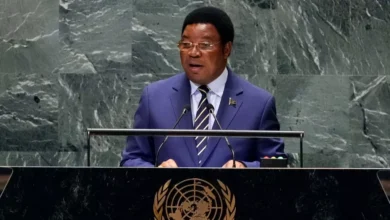
In December, Nigeria experienced its fourth consecutive month of rising inflation, reaching 34.80 percent, as reported by the national statistics agency. This marks an increase from the 34.60% recorded in November.
The agency attributed this rise to heightened demand associated with the holiday season.
According to the National Bureau of Statistics, food inflation stood at 39.84% year-on-year in December, slightly down from 39.93% in November, driven by price hikes in items such as sweet potatoes, rice, and beer.
The inflation surge followed the devaluation of the national currency and the reduction of subsidies by the president in 2023, measures aimed at stimulating economic growth and improving public finances.
Inflation had begun to decline last summer; however, a series of petrol price increases led to another uptick, exacerbating the most severe cost of living crisis the country has faced in decades.
The government anticipates that the inflation rate will decrease to 15% this year, supported by a reduction in petroleum product imports.




